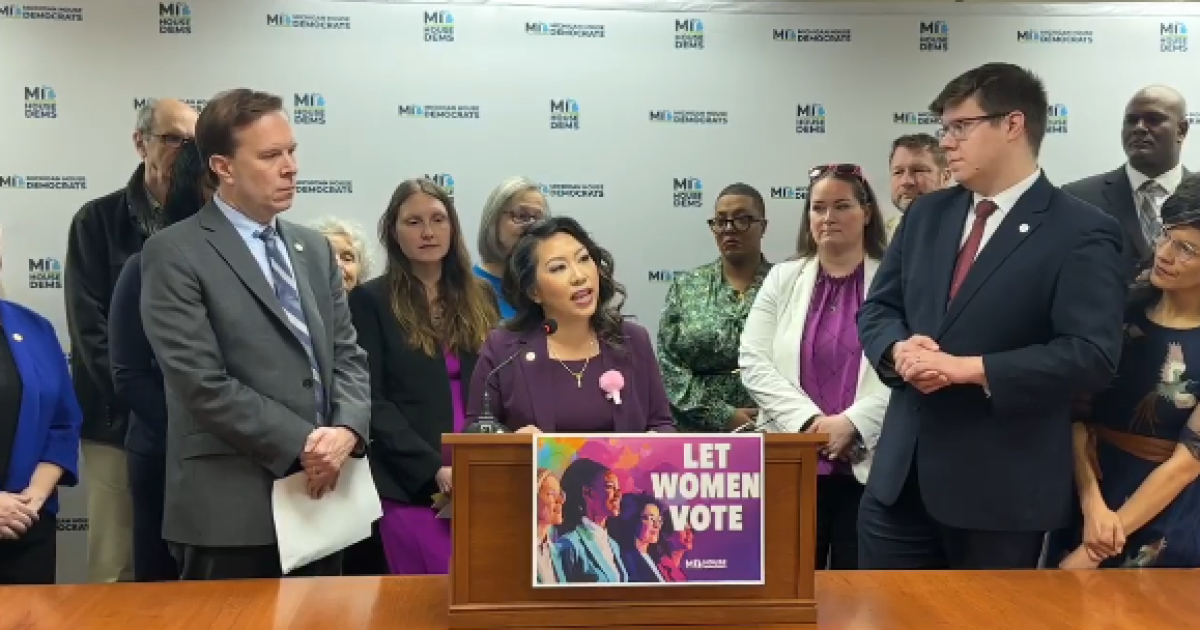Michigan House Democrats Oppose New Voter ID Resolution
In a move stirring significant debate, Michigan Republicans have introduced a joint resolution proposing stricter voter ID requirements that would necessitate additional proof of citizenship for voting in state elections. This proposal, aimed at amending the state Constitution, is facing strong opposition from House Democrats.
Democratic members of the Michigan House have raised concerns that the resolution could create unnecessary obstacles for eligible voters. Under the proposed changes, individuals registering to vote post-December 18, 2026, must verify their U.S. citizenship through documentation or confirmation from the Secretary of State. Voters unable to provide such proof would be allowed to cast a provisional ballot, which would only be counted if photo identification is presented by the sixth day following an election.
The resolution, introduced by Republican legislators, is partly justified by an incident involving a University of Michigan student from China, Haoxiang Gao, who allegedly submitted a ballot despite not being a U.S. citizen. Gao, who holds a green card, is facing felony charges for this action, as federal law prohibits non-citizens from voting in U.S. elections. Gao’s court appearance is scheduled for April 4.
Proposed Changes to Voter Verification
Currently, Michigan law allows voters to verify their identity by signing before an election official, who then checks the signature against registration records. The state Constitution also permits voters to use a photo ID or sign an affidavit for identity verification. The proposed resolution, however, would remove the affidavit option, mandating the use of a provisional ballot for those without a photo ID.
According to the House Fiscal Agency’s legislative analysis, acceptable identification for election purposes would be defined by the state Legislature and must be issued by an educational institution or a government entity. Individuals lacking such identification could claim financial hardship to obtain the necessary documents at no cost.
The resolution further proposes that the Secretary of State annually verify the citizenship status of individuals listed in the statewide voter file, with the findings reported to Congress by January 31 each year.
Democratic Response and Concerns
Democratic legislators have voiced significant concerns. Representative Mai Xiong (D-Warren) noted that the resolution could disproportionately affect senior citizens, disabled individuals, military personnel abroad, and married women who change their last names. “These are unnecessary barriers being put between Michiganders and the ballot box. Voting is the single most important thing that our residents can do to ensure that their voice is being heard,” Xiong stated.
Representative Penelope Tsernoglou (D-East Lansing) criticized the resolution for making it more difficult for citizens to vote. She emphasized that voter fraud is exceedingly rare, as confirmed by the Michigan Department of State. Tsernoglou warned that the resolution would burden underrepresented groups and exacerbate challenges faced by election officials. “This resolution makes it harder for everyday Michiganders to register and exercise our right to vote,” she said.
Financial implications were highlighted by Representative Matt Koleszar (D-Plymouth), who argued that the costs associated with obtaining the necessary documentation could deter some residents from voting. He called the resolution a response to a “fake problem,” emphasizing the financial burden on voters.
The resolution will proceed to a second reading in the House of Representatives. To be enacted, it requires a two-thirds majority in both legislative houses and voter approval in the 2026 general election.






